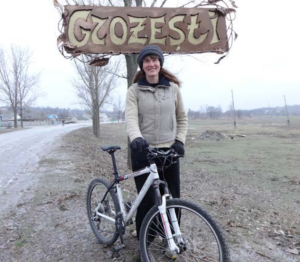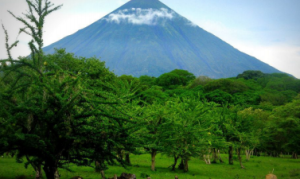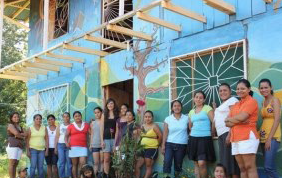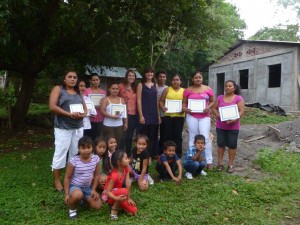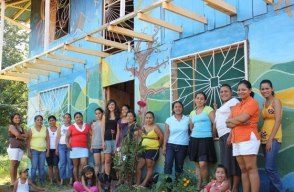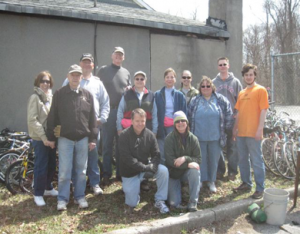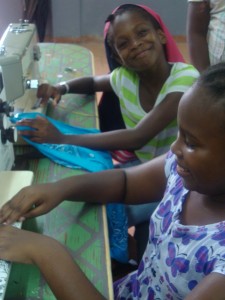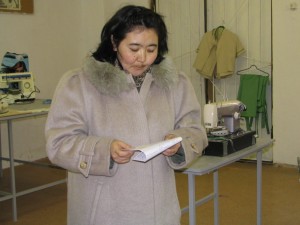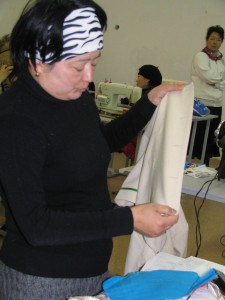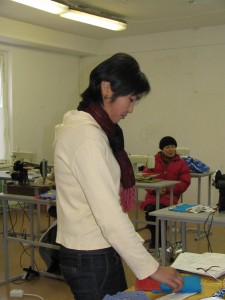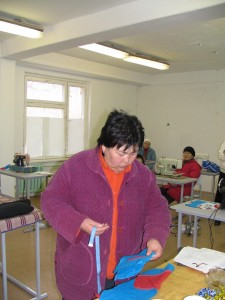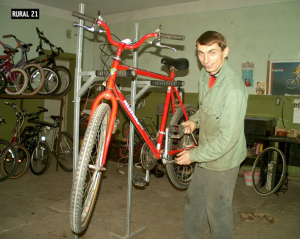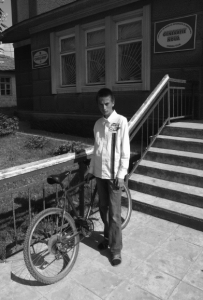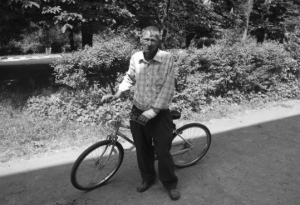by Carol Stadden, Peace Corps Volunteer
InGear Fall 2014
Walking down the street, strangers stop me and ask when the bikes will arrive. They thank me, sometimes with a hug or even a kiss on the hand. Everyone hopes to buy at least one bike and they are eager for them to come. The school basement has been cleared and new locks have been purchased for the doors as we await our “Christmas in June”. Something like this doesn’t happen every day in a small village like Grozesti!
The Diamond Challenge team made headlines in America. Grozesti proudly sent the winning Moldovan team of young entrepreneurs to compete in the National Diamond Challenge competition at the University of Delaware the end of April. Their winning business concept was to open a bicycle repair/rental business using the bikes from P4P to start their venture. Tudor and Tamara got to spend their first day in the US with David, president of P4P! He took them on a scenic tour of High Bridge and to see where the bikes are loaded into crates. David taught them the easiest way to price the bikes once they arrive in Moldova, “Close your eyes and feel the weight of the bike; the lighter it feels, the more expensive it is”. Tudor and Tamara spent the night at David’s home and both said they would never forget his wife’s pancakes! In the morning they were whisked off to Delaware for a tour of the college campus and the following day the team took third place in the competition! Even though they did not win, they gained valuable knowledge about starting a business and they had a trip of a lifetime; it was a dream that came true for them.
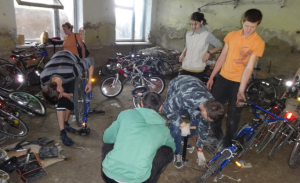
In early May flyers were posted in our village and neighboring villages describing P4P and the shipment of bikes and sewing machines. Raffle tickets were sold to give away one free bike in order to generate funds and more excitement–if that was even possible!
We sold over 1,000 tickets. When the truck pulled up on June 12th, young and old gathered at the school to help unload the crate and to get a good look at its contents. Before the school’s summer break I spoke to each of the senior classes to find my crew of mechanics and sales people. My inventory team arrived and we began the long process of numbering and cataloging each bike. Pricing came later. No one can believe how beautiful the bikes are or that they are “used”.
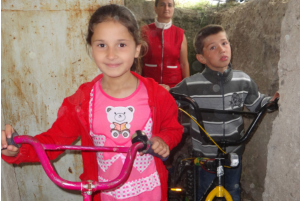
My team of 12 mechanics worked like a well oiled machine. We had all the bikes repaired in two days! Tickets were sold in advance and the first five winners were waiting patiently with a stream of onlookers behind them. Each new bike owner was interviewed so in the future we will be able to monitor the usefulness of the P4P program and help P4P determine if it is achieving its mission goals. The entire container of bikes, which seemed enormous when it first arrived, completely disappeared over the weekend.
Everyone left happy. 50 bikes were purchased by an innovative entrepreneur who will rent the bikes to tourists who stay in his network of rental homes (Hai la tara). They are beautiful vacant homes dotted throughout Moldova belonging to grannies on a pension. This money supplements their meager incomes.
I am now working with a young woman who wants to help stem the tide of human trafficking in Moldova by teaching the young girls (and boys) in our village to sew. She will teach classes at the school and open a small shop. Her shop will provide needed jobs making it unnecessary to migrate in order to find work! So this is the summer when Grozesti became “the village where everyone rides a bike”.

